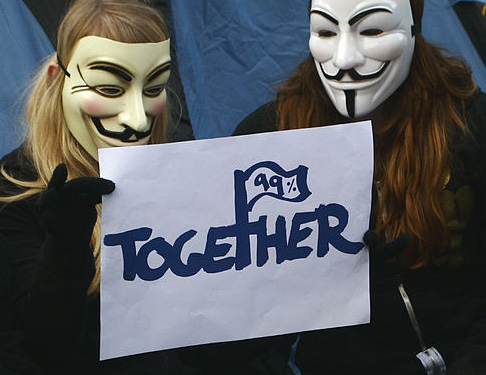The Meritocratic Ideal
 One of the narratives born out of the 2008 financial crisis was a very genuine questioning of the socioeconomic underpinnings of our society — capitalism and democracy. Initially, this discourse mostly centered on capitalism’s future and our understanding of free-market principles. The American democratic model also came under fire, perhaps because of Congress’ dysfunction. Some even asserted the superiority of alternative governance systems, like China’s one-party model. However, today, much of the focus has shifted to the powerful individuals within our government and financial institutions — our “elites”.
One of the narratives born out of the 2008 financial crisis was a very genuine questioning of the socioeconomic underpinnings of our society — capitalism and democracy. Initially, this discourse mostly centered on capitalism’s future and our understanding of free-market principles. The American democratic model also came under fire, perhaps because of Congress’ dysfunction. Some even asserted the superiority of alternative governance systems, like China’s one-party model. However, today, much of the focus has shifted to the powerful individuals within our government and financial institutions — our “elites”.
The recent LIBOR scandal is the latest in a long line of events which have evoked deep discontentment and distrust with the elite class (think the Occupy Movement). How did our elite class, supposedly the best and brightest, arrive at this state of “institutional corruption,” as Christopher Hayes of MSNBC describes?
Hayes, in an excerpt of his book “Twilight of the Elites: America After Meritocracy”, describes meritocracy as giving rise to an elite class that rises on the basis of good grades/achievements, but which becomes corrupt (legally, and illegally) to propagate their success. This ultimately results in an oligarchy or plutocracy. Hayes claims that there is an “Iron Law of Meritocracy”, where “societies ordered around the meritocratic ideal will produce inequality without the attendant mobility.” He then argues that this results from a “cult of smartness” which drives the elite to dominate and differentiate on the account of their supposed superior intelligence. And from their positions of dominance they propagate their own sense that they are indeed the “smartest.” Such a “meritocratic feedback loop” unfortunately affects the public too — UVA Professor Siva Vaidhyanathan states: “At some point in recent American history, we started assuming that if people are rich enough, they must be experts in all things.”
David Brooks, also writing about meritocracy in “Why Our Elites Stink,” instead claims that today’s meritocratic elites “preserve their status not mainly by being corrupt but mainly by being ambitious and disciplined.” Yet he also claims that “today’s elite lacks the self-conscious leadership ethos” because they “cannot admit to themselves that they are elite”. Brooks explains that meritocracy (how to succeed) has superseded morality (how to be virtuous) in today’s leadership ethos. In other words, today’s new elite carries the powers of old, but without the accompanying “noblesse oblige.”
I think both Hayes and Brooks are right. Meritocracy has, to a small extent, allowed elites to emerge and consolidate their positions of power, sans the moral imperative of the generations past. Yet meritocracy certainly shouldn’t be blamed for other corrupting influences like unlimited campaign contributions. Over the course of history, some degree of corruption has been present in most political systems. Minimizing this in today’s society would require a conception of a virtuous citizenry and an honest debate about the (necessary) moral underpinnings of our societal institutions.

